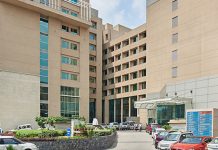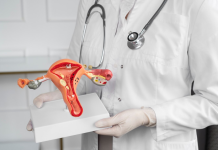Varicose veins are a common condition that can cause discomfort, pain, and cosmetic concerns. While lifestyle changes and non-invasive treatments can manage mild cases, severe varicose veins often require the expertise of a vascular surgeon. Here’s how a vascular surgeon plays a crucial role in varicose veins treatment:
1. Diagnosis and Assessment
Comprehensive Evaluation
A vascular surgeon begins by conducting a thorough evaluation of your vascular health. This typically includes a physical examination and may involve diagnostic imaging, such as Doppler ultrasound, to assess blood flow and identify the underlying causes of varicose veins. The surgeon evaluates the severity of the condition, considering factors like the size and location of the varicose veins, as well as the presence of any related complications, such as skin ulcers or deep vein thrombosis.
Customized Treatment Plans
Based on the assessment, the vascular surgeon develops a personalized treatment plan tailored to your specific needs. This plan may include recommendations for lifestyle changes, compression therapy, or surgical intervention, depending on the severity of your condition.
2. Surgical Treatment Options
Minimally Invasive Procedures
For many patients, minimally invasive procedures offer effective treatment with shorter recovery times. A vascular surgeon can perform several types of minimally invasive procedures, including:
- Endovenous Laser Treatment (EVLT): This procedure uses laser energy to close off varicose veins, causing them to shrink and eventually be absorbed by the body.
- Radiofrequency Ablation (RFA): Similar to EVLT, RFA uses radiofrequency energy to heat and seal off the affected veins.
- Sclerotherapy: In this procedure, a special solution is injected into the varicose veins, causing them to collapse and fade over time.
Traditional Surgery
In more severe cases, or when minimally invasive methods are not sufficient, a vascular surgeon may recommend traditional surgical options, such as:
- Vein Ligation and Stripping: This involves tying off the affected vein and removing it through small incisions in the skin.
- Phlebectomy: A procedure that removes small varicose veins through tiny skin punctures.
These surgical options are typically performed under local or general anesthesia, and patients can usually return home the same day.
3. Post-Treatment Care and Prevention
Follow-Up Care
After treatment, a vascular surgeon provides comprehensive follow-up care to ensure proper healing and to monitor for any complications. This may include recommending compression stockings, advising on physical activity, and scheduling follow-up appointments to assess the success of the treatment.
Preventing Recurrence
Even after successful treatment, varicose veins can recur. A vascular surgeon offers guidance on lifestyle modifications, such as maintaining a healthy weight, exercising regularly, and avoiding prolonged periods of standing or sitting, to reduce the risk of recurrence.
A vascular surgeon plays a pivotal role in the effective treatment of varicose veins, offering both non-invasive and surgical solutions tailored to the patient’s needs. From diagnosis to post-treatment care, their expertise ensures that patients receive comprehensive care, leading to improved vascular health and a better quality of life. If you’re experiencing symptoms of varicose veins, consulting with a vascular surgeon can provide you with the best options for treatment.










